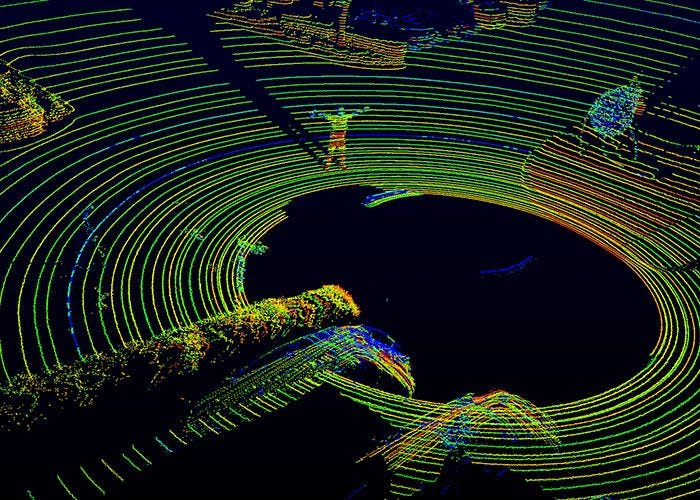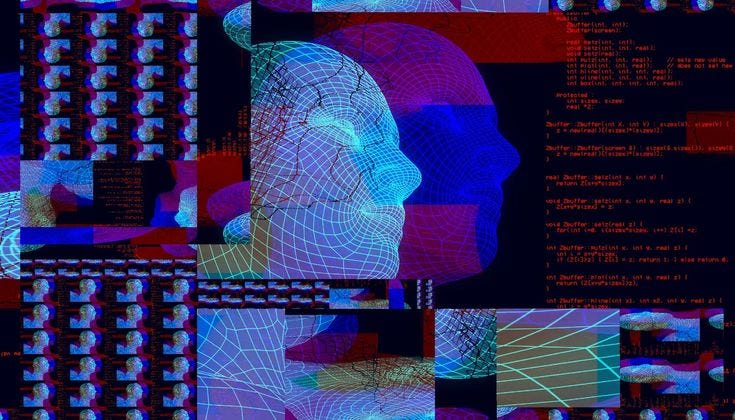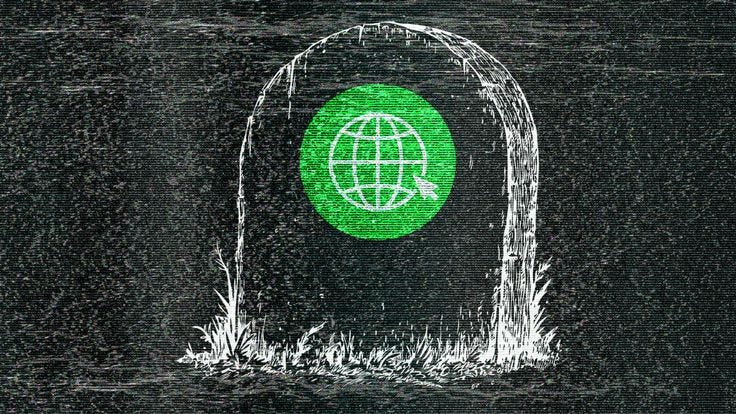The Dead Internet theory
The web could be a bot hallucinating itself
Hello fellow unemployed friends.
I want to introduce myself with an embarrassing confession: My name is Marco, I am 21 years old, and the other day, I was on YouTube Shorts.
Yes, YouTube Shorts—probably one of the worst realms of the internet. Only professional scrollers will understand what I mean. Naturally, I vegetated for an undefined amount of time through clips of Suits and Peaky Blinders, slipped into AI-generated Trump, Biden, and Obama voiceovers playing over Subway Surfers footage, and somehow ended up watching car crashes, street fights, NBA dunks and clips from famous podcasts. Occasionally, I’d open the comments—big mistake. I couldn’t believe the surreal interactions I was witnessing. Bots, maybe? I genuinely struggled to imagine that behind each of those accounts was a real person with a family, hobbies, hopes and dreams.
Then my mind wandered to Twitch. These days, the biggest streamers (I will spare you names and details) pull an average of 80,000 viewers. Eighty. Thousand. And for what? Casually playing some videogame or awkwardly interviewing a guest who’s clearly only there for easy clip-farming. Sometimes, these are even high-profile people, visibly uncomfortable, but trapped by the raw, undeniable power of the streamer's numbers—a platform too tempting to pass up when it comes to self-promotion. But I digress.
Here’s the thing: I don’t buy these insane numbers. Call me a conspiracy theorist, delusional, whatever—but I’m just observing the reality around me. I’ve never watched a stream for more than five minutes, and I don’t know anyone (not even my most hardcore, unemployed friends like me) who actually watches—let alone interacts with—a Twitch stream.
Am I ignoring a younger demographic that I don’t usually interact with? Maybe.
Am I unfairly hating on how people choose to spend their free time? Probably.
Am I a hypocrite because, just a paragraph ago, I shamelessly admitted to getting trapped in the YouTube Shorts abyss? You bet.
However, is there at least some truth to my fear that a disturbingly growing percentage of internet content is being flooded with bots and AI-generated junk? Absolutely.
It’s called "The Dead Internet theory"—a conspiracy that, in a nutshell, suggests that almost every bit of online traffic is driven by ghost users and fake websites. And here’s the kicker: these were supposedly carefully unleashed into the vast ocean of the internet by governments and mega-corporations to manipulate the masses and shift the balance of public opinion like cyber puppeteers. Or even better, my personal favorite: to keep the masses dumbed down, stuck in the "Matrix."
As much as I get hyped by all this bullshit, it’s impossible to deny that these theories are built on real facts. For example, according to the 2024 Imperva Bad Bot Report, bots make up 46% of traffic on social media. Or even better: a study by researchers from Stanford and the University of Washington found that up to 15% of online written content, like press releases and job ads, is generated or altered by language models like ChatGPT.
These are unsettling numbers. It’s no secret that it’s been proven there have been instances where, thanks to massive amounts of personal data collected, targeted bot attacks have had a not negligible impact on political results, like Brexit or the 2016 USA presidential elections.
Bots would essentially create full-on feedback loops of content and artificial engagement, growing in magnitude with each and every minute.
Social media algorithms work a bit like gravity, where the mass of engagement drives the content’s viral potential. This creates an avalanche effect, inevitably pulling in more and more bots and real users, who will at best, be used for ad revenue, at worst, bombarded with divisive media messages.
Sounds really like my ideal routine: wake up, brush my teeth, grab my phone, and get a little hypnosis to get me to hate something or someone—like I need social media to kick off my day triggered in the first place. You seriously underestimate me.
Now, the creepiest part: according to proponents of these theories, the internet straight-up died around 2016. Since then, there have been only AI “ghosts” talking to each other, exchanging AI-generated content, and arguing among themselves.
All for your entertainment... or, you know, to monopolize your screen time.
It’s a matter of perspective.
Anyway, the era of procedurally generated content is coming.
To all my fellow musicians out there, if you want an easy mood-killer, just look up some AI-generated music on YouTube.
To all my fellow artists… who am I kidding, you already know that’s bad news. Similarly, in the near future, it’ll be nearly impossible to tell the difference between genuine human interaction and AIs trained to either rage-bait you; make you believe that intermittent fasting actually does something, or worse, that at 21 you should be applying to internships instead of ranting on the internet… damn, AI’s getting way too advanced these days. Low blow…
I’ll leave you with a few questions: With the exponential growth of AI, could we actually make this theory a reality? Are we already browsing through a post-apocalyptic cyber-wasteland, or has this conspiracy predicted what’s to come? Free inspiration for Black Mirror screenwriters, I guess…
Meanwhile, I think I’ll enjoy a YouTube Shorts session. Till next time!








Any scrollers in the chat?💀 Thanks for having me guys, see you soon.
always in my constant loop of deleting and redownloading every app I have. when will it end ! great piece